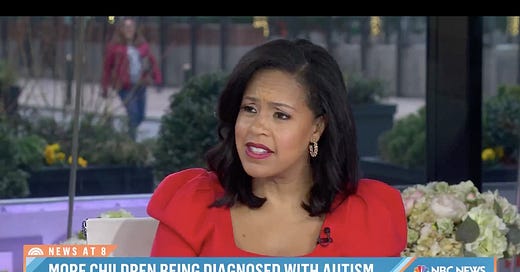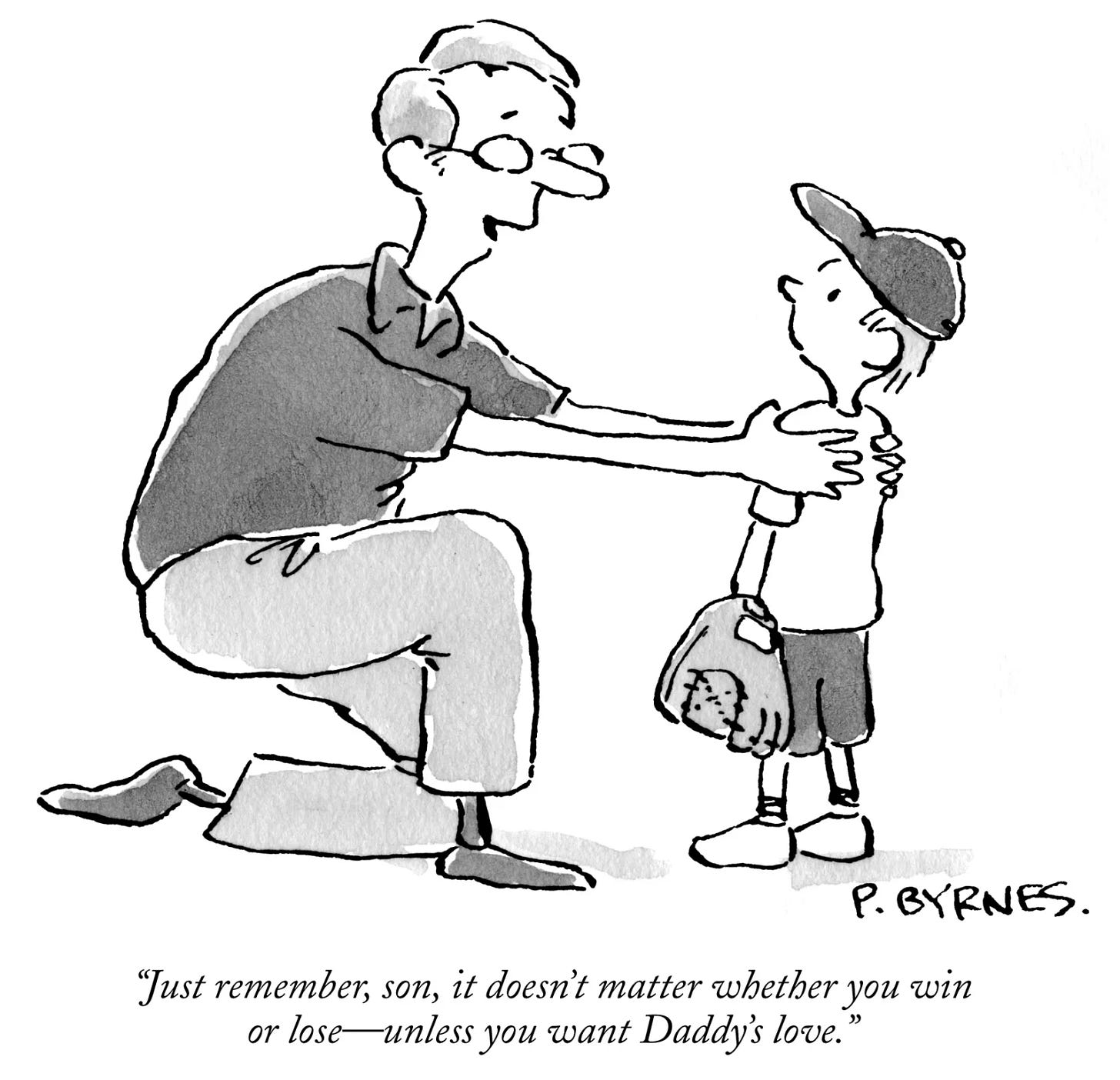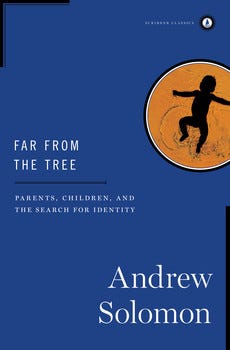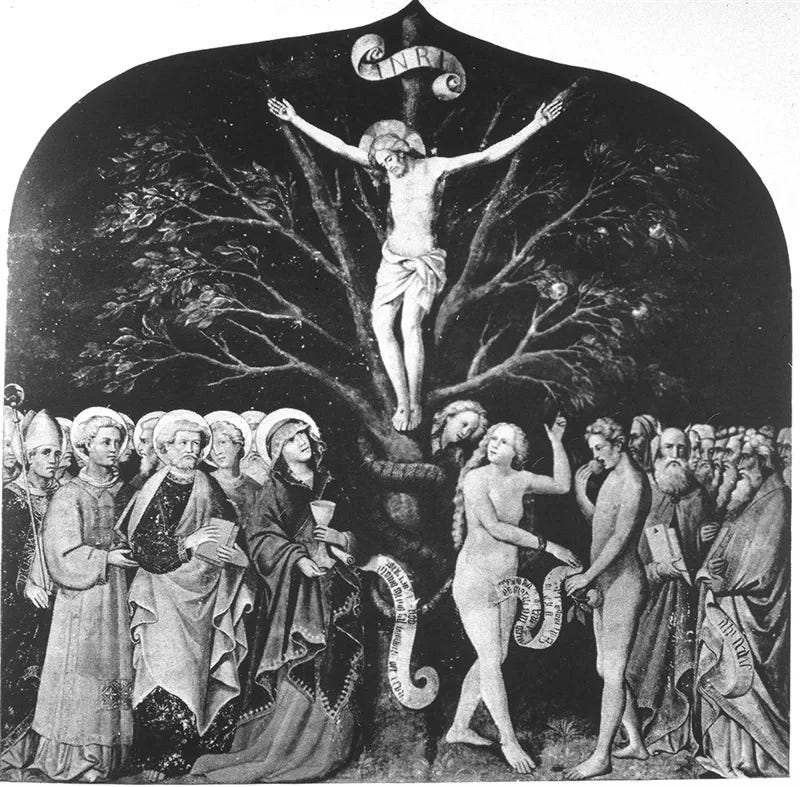Hushed Tones
This past month, the Today Show ran a segment on the so-called “autism epidemic.” What’s behind the exponential rise in autism diagnoses?
The answer, by the way, is simple: more awareness and more screenings. It’s not that there are more autistic people being born today than there were in 1950; it’s that parents are screening earlier and more frequently.
But what struck me about the segment is how Savannah and Company speak in hushed tones. There is an air of concern. When Dr. Torres says autism “could happen to anyone” (as if it’s an atom bomb or a cancer cell) one of the hosts asks Doc about warning signs. “What are the warning signs that parents should be looking out for?”
I’ve heard these hushed tones before.
When I share with other parents that we have an autistic son, they often make the face. Maybe they have young children themselves, and so the wheels start to turn: they look off into space, and suddenly become very curious about “when did we know Sam was different.” They recall their own child’s most atypical or eccentric behaviors, and wonder: “Is it possible that she is…?”
Beneath all of the hushed tones and questions about “early signs” are the same basic and underlying assumptions:
Autism is bad. Or at least not ideal.
It is something to be feared. And in the event it ever happens to us, we need to be prepared.
In other words, God forbid our child be autistic.
Tyranny of the Normal
It’s not like autism is the only thing parents fear. If we were to count all the fears for our children, they would outnumber the stars and/or the sand etc. etc.
But the list of fears has gotten pretty long. And that’s true in part because we have enslaved ourselves to “the tyranny of the normal”—such that any deviation on the part of our children from whatever our world or our tribe deems “normal” can feel unbearable. These can range from “God forbid our child have Down Syndrome or be autistic” to:
God forbid our child not make travel baseball (ugh).
God forbid our child not qualify for private education (ew).
God forbid our child be a “band kid” and not an athlete (gross).
God forbid our child not go to college (gasp).
God forbid our child not get married.
God forbid our child not have grandchildren.
I’m not saying any of these things are bad, or that they’re all the same—some are more painful and consequential than others.
But out of some combination of society’s expectations, our individual fears, and the unmet longings of our own childhood—we have become like the Pharisees of Jesus’ day, “adding to the law of God” by making the list of things our children must be much longer than it should be.
In the process, we pathologize things in children—traits / genes / habits / likes / dislikes—which are not inherently bad, but are simply uncomfortable or feared by our tribe or demographic. To be sure, there are some things in humans that are wrong that also make us scared or uncomfortable. But there are many things which make us scared or uncomfortable that are not therefore wrong. And we need to be reflective and honest about which is which.
Stephanie Phillips writes—poignantly—over at Mockingbird about her journeys as a mother to an autistic son. She confesses that for many years:
“much of our efforts — much of my efforts — were on making him more ‘normal,’ more like those around him. On creating a kid who was easier to raise rather than understanding the one I had. When he was in first grade, his therapist overheard another kid say how glad he was that he didn’t have autism. My heart shattered, then grew resolved: maybe it wasn’t James who needed to change. Maybe the world did.
Far From the Tree
This has me thinking about Andrew Solomon, who in 2013 wrote the only book on parenting that really matters, Far From the Tree.
(Note to reader: I do not ideologically agree or align with everything Solomon says or stands for. You probably won’t either. That’s okay. You can still read it.)
Solomon’s book centers upon a fundamental tension: how do you endure in parenting and loving a child who cannot love you in the way you want to be loved? How do you love the apple who actually does fall far from the tree—the child who does not look or act like you?
In his own words, “They are deaf or dwarfs; they have Down syndrome, autism, schizophrenia or multiple severe disabilities; they are prodigies; they are people conceived in rape or who commit crimes; they are transgender.” Solomon spent time with 300 sets of parents who gave birth to such children. What they all have in common is that they could not love their parents back in the way Mom and Dad hoped or imagined.
Warning: the book is not for the faint of the heart. Spoiler: some marriages make it; others don’t. As the New York Times review noted,
“How does it feel to be the mother of a teenage dwarf who’s desperate to start dating? What if you love the daughter you conceived when you were raped but can’t bear to be touched by her? And, as the father of a happy, yet profoundly deaf son who’s forgotten how it feels to hear, how do you deal with your memories of the times you played music together?”
In particular, the chapter on “Autism”—which happens to be the longest—wrecked me. It was equally inspiring and nauseating.
One father has a severely autistic 10-year-old boy who lives in a residential home. It’s his son’s birthday, and they are bringing him a cake, when in a moment of honesty and weakness, the father says, “I don’t know who we’re doing this for.”
In another episode, a family has an autistic daughter who has only spoken four times in her life. Which is somehow harder than zero times, because, as Solomon says, “To have a child totally incapable of language is distressing but straightforward, but to have a child who has spoken four times is to labor in terrifying murkiness.”
“To labor in terrifying murkiness:” a decent definition of parenting. Thankfully, as Solomon says, “Parenting is no sport for perfectionists”—and his vignettes are full of grace and compassion. Solomon is not a Christian. But his book is. What is more Christian than asking: how do you love a child who cannot love you back?
The reason Far From the Tree is the only parenting book that really matters, is because that is the only parenting question that really matters. And it is a question at the heart of Christianity—the perfect love of a Father who, through a tree, adopts children who have fallen far from it.
God Forbid My Child be Autistic
The reason I’ve been thinking about hushed tones, and parenting fears, and Far From the Tree is because—confession—I’m afraid my youngest son might be autistic.
His name is John. He’s six-months-old now. And statistics say if you have one autistic child already, and then you give birth to a baby boy, the chances of that boy being autistic are around 25%.
So, for the past six months, nearly day of John’s life, I have been on the lookout for signs and clues and—cough—warning signs. For the past six months:
I have held out my finger for John to grip with his little hands—not first and foremost because I wanted to touch him, and feel the miracle of human fingers, but because I want to test his “grip strength.”
I have said his name and tried to make eye contact—not because I wanted to behold the wonder of a human face, on ikon of God’s face and my face and my wife’s face, but because I wanted to test his “eye contact.”
And because autism doesn’t begin to fully manifest until eighteen months or so, I will probably (and sadly) continue to operate this way for another year. Like Brad Pitt confesses at the end of Tree of Life, “I’m a foolish man.” I have “dishonored it all” and “missed the glory.”
But I will say this: the gift of having one forbidden child, and worrying about another, forces one to “work the 12 steps.”
It is a daily revelation of my addiction to “normal children.”
It is a lesson in powerlessness, and in accepting the things I cannot change.
It is a reminder that I will have to “make amends”—and assess the ways I’ve wronged my children by using or instrumentalizing them to salve my owns needs and insecurities.
In the end, it is a reminder that the person that needs to change is not my child—but me. God forbid me wishing my child were more “normal.” God forbid me.







Well said! Thank you, Jordan
This should be a must read for every parent
the last part of this; the wishing my child were "normal", and maybe it's me that needs to change not my child - that hit me hard. as the mother of 2 kids with IEPs - my daughter has dyslexia; my son has ADHD and Asperger's - that guilty wish for my child to be "normal" is something i struggle with. and one of my children does something unique, and i can see the beauty in their difference and i'm grateful i get to be their mother. thank you jordan.